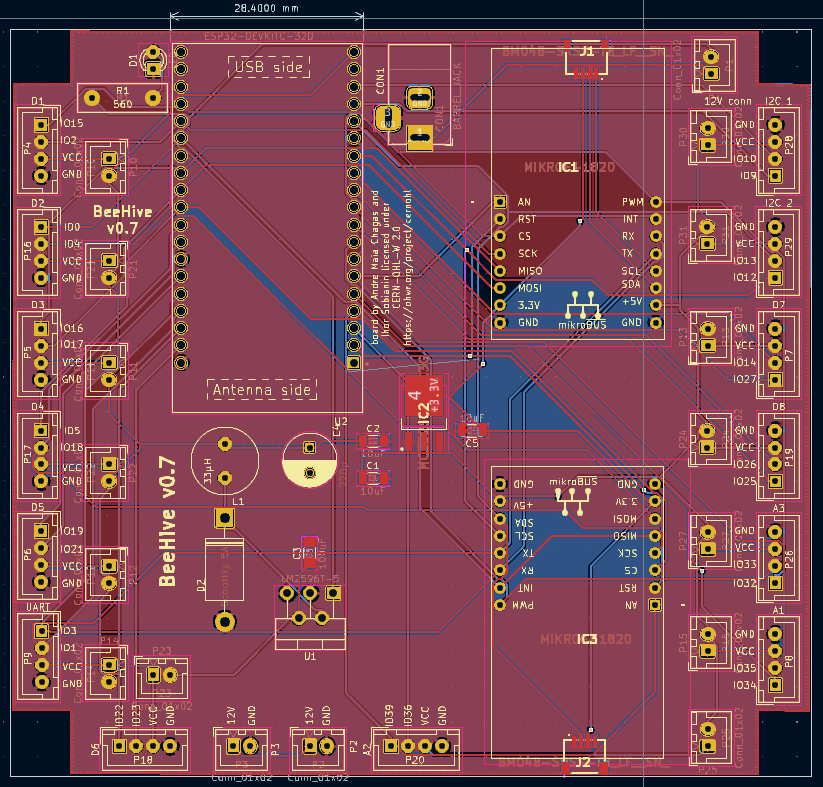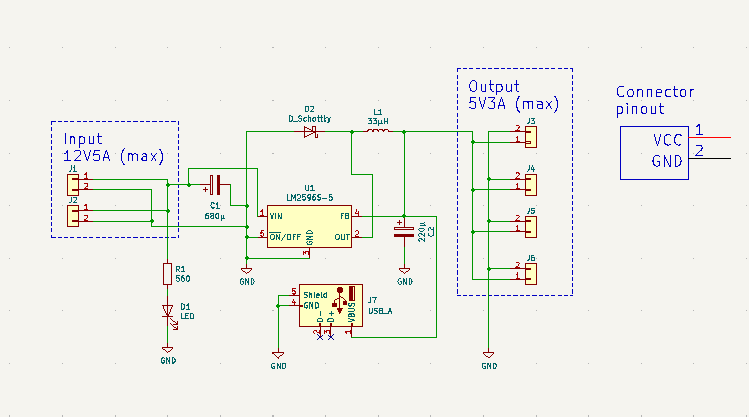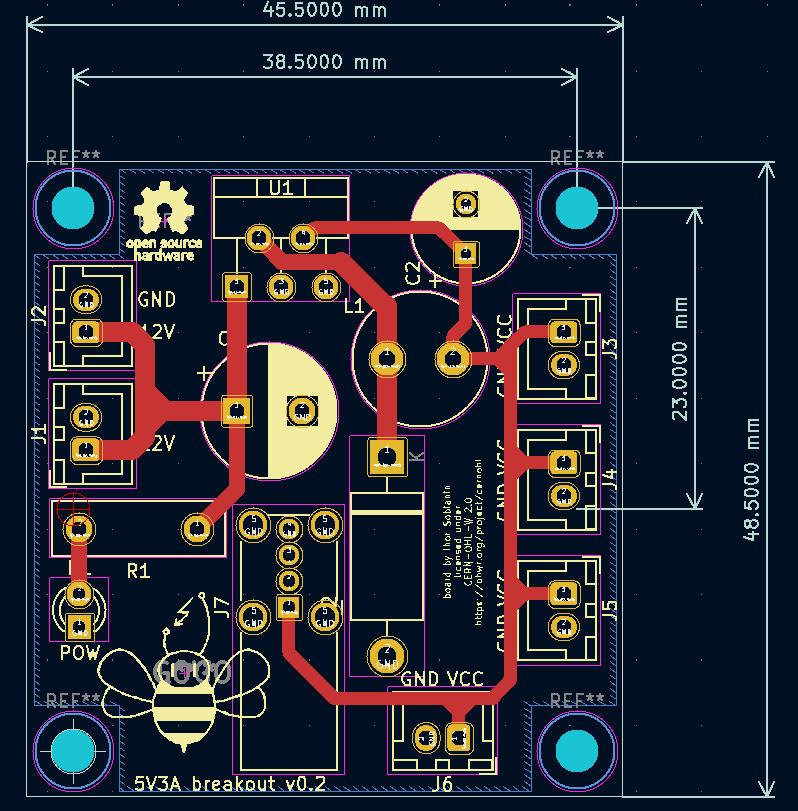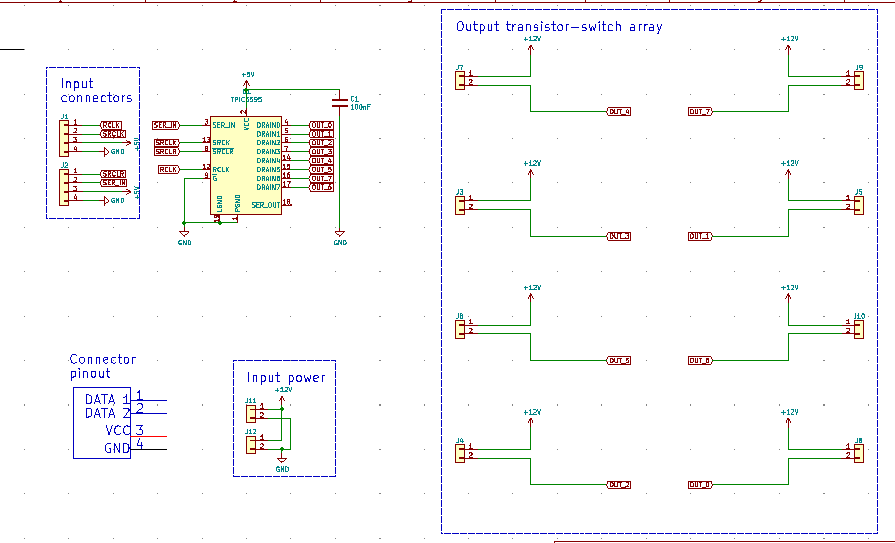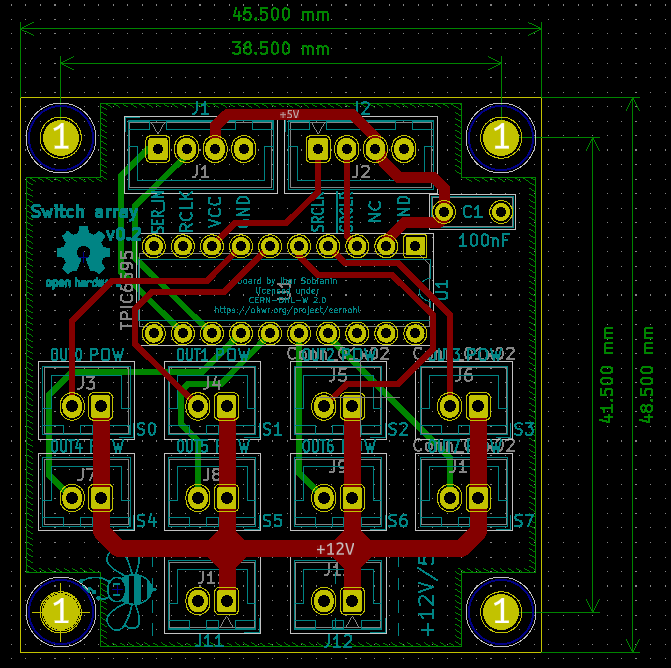This project started as a collaboration between Ihor Sobianin and Andre Chagas, after some chats about improving the FlyPi design.
The idea here is to make a very flexible hardware system that is easy to expand/customize for lab applications. The very initial implementation consists of:
-
a hub PCB - which contains:
- 2 voltage regulators that step down voltage from 12V to 5V and supply these 3 voltages to specific pins throughout the board.
- a central slot for an ESP32 WROOM and the breakout of all its pins into JST connectors.
- Two Mikroe MikroBus connectors (https://www.mikroe.com/mikrobus).
- Two Sparkfun Qwiic connectore (https://www.sparkfun.com/qwiic).
- A 3.3V onboard voltage regulator.
-
4 switch array with an TPIC6B595 shift register and transistors.
-
8 switch array with an TPIC6B595 shift register and transistors.
-
12V5A breakout which is based on simple barrel jack connector and JST connectors
-
power supply which are based on the LM2596 T5 a step down switching regulator For more details see current design section below.
On the software side of things we are initially running micropython, as this will offer a low entry barrier for researchers (as Python is more and more the chosen language for much of the scientific stack).
-
The current implementation runs stock micropython with OSC library for communication, as this will allow easy integration with Bonsai-RX, a powerful piece of software that has integrations with other interesting open source tools for science, such as open ephys, DeepLab Cut and other proprietary but useful tools, like high speed cameras, National Instruments DAQ systems.
-
The main wish software wise for this project is to make it compatible with Labthings.

